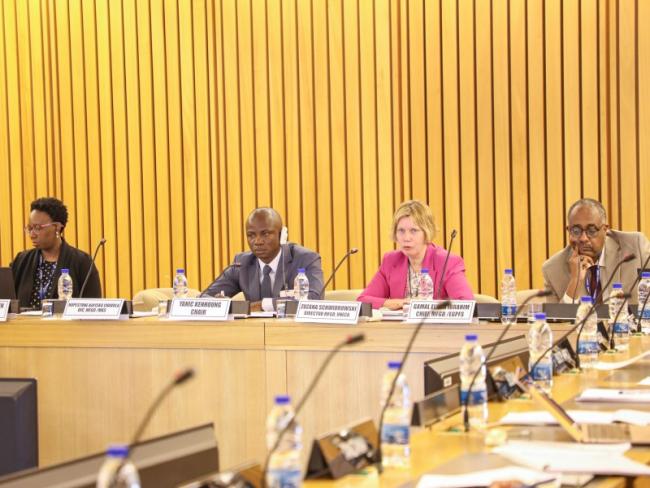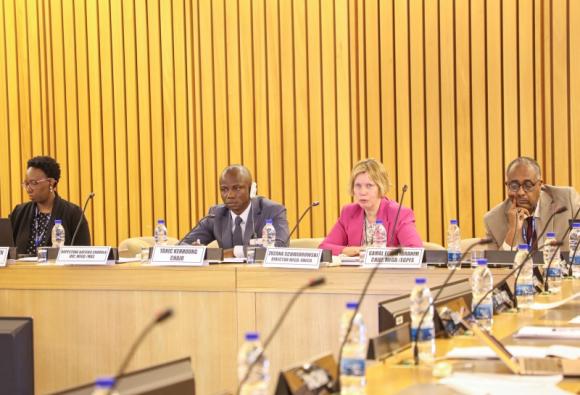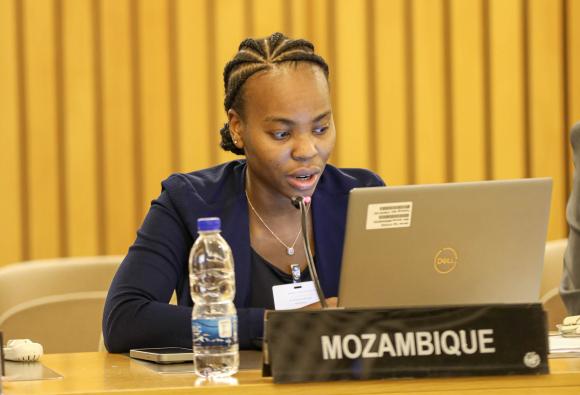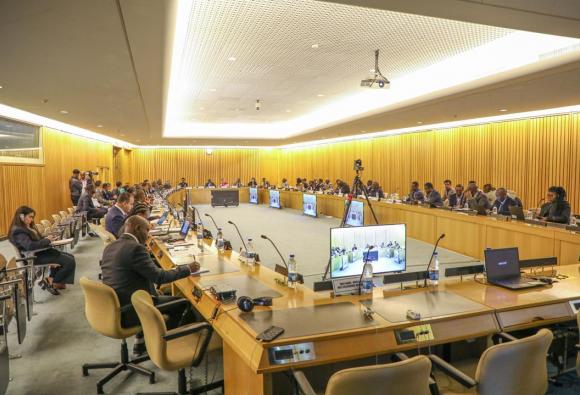At its fifty-second session, held in Marrakech, Morocco, on 25 and 26 March 2019, the Conference of African Ministers of Finance, Planning and Economic Development adopted resolution 966 (LII) on the review of the intergovernmental structure of the Economic Commission for Africa pursuant to its resolutions 943 (XLIX) and 957 (LI), in which it took note of the review of the intergovernmental structure, its findings and recommendations, and endorsed the establishment of five sectoral subsidiary organs, including the Committee on Economic Governance. The Committees were established with a view to ensuring effective policy uptake and greater participation of senior government officials in the relevant Committee platforms.
The role of the Committee, as an advisory forum of experts and policymakers, is to coordinate the work of the subprogramme on macroeconomic policy, finance and governance of the Economic Commission for Africa (ECA) to ensure coherence and impactful results in the support provided to its members and other stakeholders in their efforts to build and strengthen economic governance institutions and policies, and to foster peer learning to accelerate sustained and inclusive social and economic development.7 The Committee is expected to provide evidence-based advice and guidance on economic governance issues related to the promotion of sound macroeconomic management and inclusive development strategies and the enhancement of financial integrity issues, such as combating illicit financial flows in Africa. In addition, it encourages networking and supports regional and global governance processes, such as the African Peer Review Mechanism, and efforts to curb illicit financial flows, as well as efforts to ensure African representation in international forums, such as the International Conference on Financing for Development and the Group of 20 Summit.
The first session of the Committee was held online on 27 April 2022. All African subregions were represented at the event. The main objective of the first session was to elect the Bureau, which subsequently reviewed and endorsed the work programme of the subprogramme. Together with the secretariat of the Committee, the Bureau coordinated the work of the Committee for the following two years.
Representatives of the following countries were elected to the Bureau: Algeria, Cameroon, Ethiopia, Ghana and Lesotho. Each of the five countries represents its respective subregion. The macroeconomic policy, finance and governance subprogramme of ECA was both the convener and the secretariat of the Committee. The Committee also reviewed and endorsed the work programme of the macroeconomic policy, finance and governance subprogramme of ECA for the biennium 2022–2024.
In 2024, the two-year tenure of the existing Bureau formed in 2022 will be completed. As such, the second session of the Committee will elect a new Bureau for the period 2024–2026 to review and endorse the work programme of the subprogramme on macroeconomic policy, finance and governance of ECA. The second session of the Committee will be held in Addis Ababa on 16 and 17 November 2024.
Documents
- Concept note
- Provisional agenda
- Draft programme of work
- Issues and challenges of financing for sustainable development in Africa
Presentations
- Opportunities and Challenges for African Least Developed Countries (LDCs)
- Issues and challenges of financing for sustainable development in Africa: priorities for Africa for the FfD4 in 2025
- Integrated national financing framework for stronger domestic resource mobilizations
- Programme of Work 2024-2025
- Macroeconomic Outlook of Africa, Challenges and Opportunities for Domestic Resource Mobilization, Action Areas, and Main Expected Outcomes from the Fourth International Conference on Financing for Development
- Enhancing international tax cooperation with a view to improving domestic resource mobilization
- Priorities for Africa towards the Fourth Financing for Development Conference in 2025






